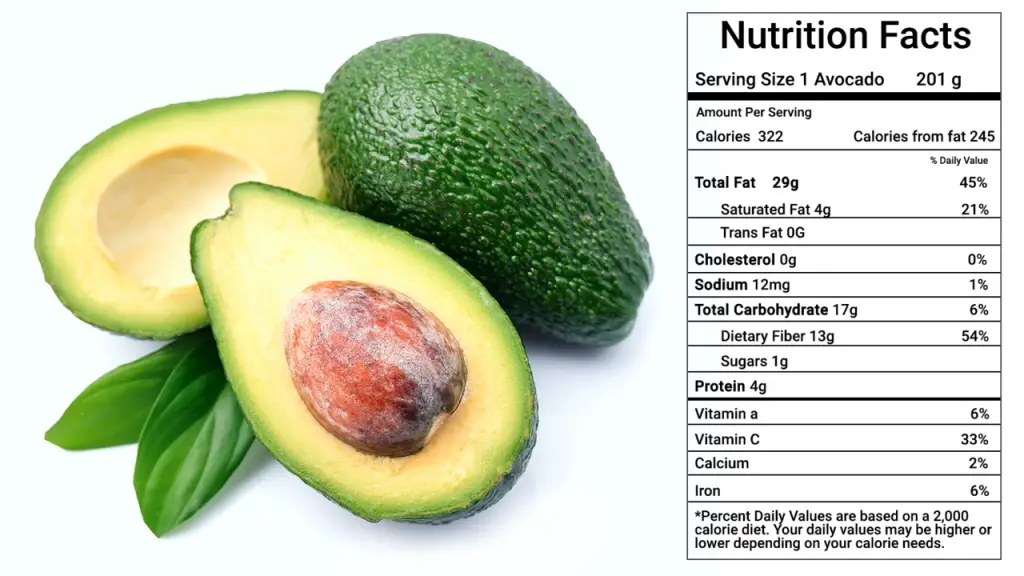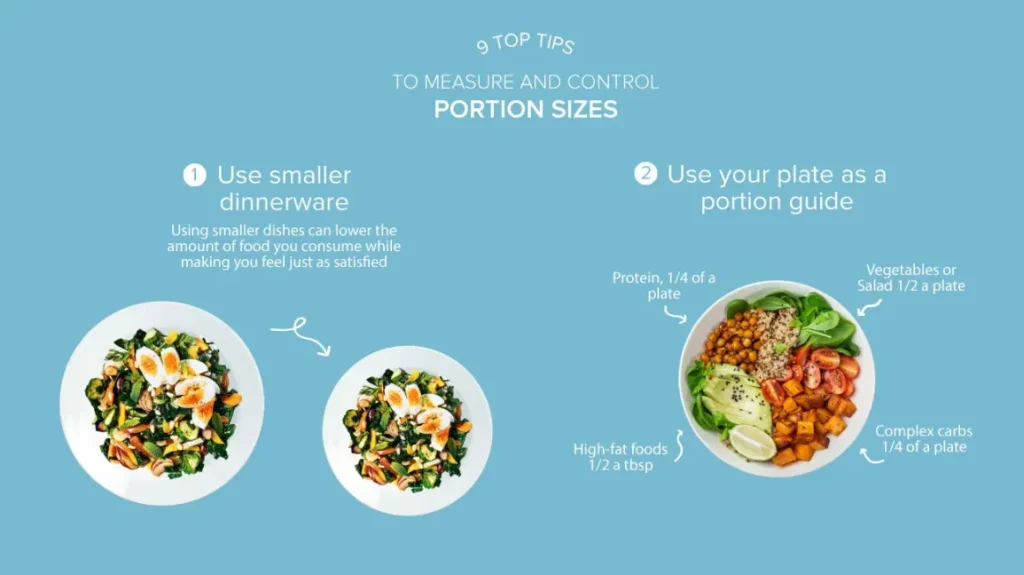Are you looking to shed some pounds and wondering if avocado can help with your weight loss goals? Well, the good news is that avocado may indeed make you skinny.
This nutrient-dense fruit is packed with healthy fats, fiber, vitamins, and minerals that not only promote overall health but can also aid in weight management.
Avocado has been gaining popularity as a superfood in recent years due to its numerous health benefits. But what sets it apart from other fruits is its high content of monounsaturated and polyunsaturated fats which are considered “good”fats that can boost heart health and lower cholesterol levels.
More importantly, these healthy fats can also increase satiety and reduce hunger cravings, making it easier for you to stick to your calorie-restricted diet.
So let’s dive deeper into the science behind avocado and weight loss to see how you can incorporate this green gem into your diet.
Key Takeaways
- Avocado is a superfood packed with healthy fats, fiber, vitamins, and minerals that can aid in weight management.
- Consuming avocados might have a positive effect on weight loss by boosting metabolism and promoting satiety.
- Avocado can be used as a substitute for butter in baking recipes and mayonnaise in sandwiches, making it a healthier option.
- Incorporating avocado into a balanced diet can add flavor and provide numerous health benefits, but mindful eating and portion control are key to achieving weight loss goals.
Understanding the Nutritional Benefits of Avocado
You’ll be pleased to discover that incorporating avocado into your diet can provide you with a wealth of nutritional benefits.
This green fruit is loaded with healthy fats, fiber, and essential vitamins and minerals. Health benefits of avocado include promoting heart health, weight management, and reducing inflammation in the body.

Avocado is also versatile in culinary uses. You can use it as a spread on toast or crackers, add it to your smoothies for extra creaminess or simply slice it up and add it to your salads.
The healthy fats present in avocado help keep you full for longer periods, which makes it an excellent addition if you’re trying to lose weight.
Aside from being delicious and satisfying, avocados are rich in nutrients such as potassium which promotes heart health by regulating blood pressure levels.
They are also high in antioxidants that help reduce inflammation throughout the body. Therefore incorporating avocado into your diet can have numerous health benefits as well as being a tasty addition to any meal!
The Science behind Avocado and Weight Loss
Understanding the scientific connection between avocado consumption and weight loss can be enlightening and motivating.
Avocado is a fruit that is rich in healthy fats, fiber, vitamins, and minerals that are essential for maintaining a healthy body. But beyond its nutritional benefits, research has shown that consuming avocados might have a positive effect on weight loss.

Here are three ways avocado metabolism can help with weight loss:
- Avocado helps boost your metabolism: Avocado contains monounsaturated fats, which are known to increase the metabolic rate of the body by burning calories more efficiently. This means that eating avocado regularly may help you burn more calories even when you’re at rest.
- Avocado promotes satiety: The high fiber content in avocado makes it an excellent food for promoting satiety or feeling full after eating. This means that adding avocado to your meals could reduce your overall calorie intake because you’ll feel satisfied with less food.
- Avocado can regulate blood sugar levels: Research has shown that consuming avocados may help regulate blood sugar levels by reducing insulin resistance. High insulin resistance is linked to obesity and other health problems like type 2 diabetes.
Incorporating avocado into your diet could be an effective way to support weight loss efforts due to its metabolic boosting properties, ability to promote feelings of fullness and regulate blood sugar levels.
However, keep in mind that moderation is key as avocados are still relatively high in calories – aim for one serving (1/3 of a medium-sized fruit) per day as part of a balanced diet.
Incorporating Avocado into a Balanced Diet
Incorporating avocado into your meals can add a delicious and healthy twist to your balanced diet. Not only is it versatile and easy to prepare, but it also provides numerous health benefits.
Avocado is rich in monounsaturated fats that can help reduce bad cholesterol levels while promoting good heart health.
One way to incorporate avocado into your diet is by trying out different avocado recipes. You can make guacamole or use mashed avocado as a spread on sandwiches instead of mayonnaise.
For breakfast, you can add sliced avocado to your toast or omelette for an extra boost of nutrients. You can even use avocado as a substitute for butter in baking recipes.
Meal planning is another great way to ensure that you are incorporating enough avocado into your diet.
By planning ahead, you can make sure that you have fresh avocados on hand and include them in your meals throughout the week.
Try adding sliced or diced avocado to salads, tacos, and stir-fries for a filling and nutritious addition.
Incorporating avocado into your balanced diet not only adds flavor but also provides numerous health benefits.
By trying out different recipes and planning ahead, you can easily incorporate this superfood into your meals and enjoy all its goodness!
Portion Control and Moderation
Maintaining a healthy diet involves practicing portion control and moderation. When it comes to avocado, it’s important to pay attention to your serving sizes.
Although avocados are packed with healthy fats and nutrients, they are also high in calories. Eating too much can lead to weight gain instead of weight loss.

Mindful eating is key when it comes to portion control. Take the time to savor each bite and listen to your body’s hunger cues. Instead of mindlessly snacking on an entire avocado, try slicing a quarter or half of one onto your salad or toast.
This way you can still enjoy the delicious taste without overindulging.
Incorporating avocado into a balanced diet doesn’t mean you have to eat it every day or in large quantities. It’s all about finding a healthy balance and incorporating variety into your meals and snacks.
Try pairing sliced avocado with veggies for a healthy snack or adding diced avocado as a topping for your favorite protein dish. Remember, moderation is key when it comes to maintaining a healthy lifestyle!
Other Factors that Affect Weight Loss
While portion control and moderation are important for weight loss, there are other factors that can affect your progress. It’s not just about how much you eat, but also about your lifestyle habits. Here are some additional factors to consider:
- Exercise habits: Regular exercise is essential for weight loss because it helps burn calories and build muscle mass. If you’re not exercising enough or at all, it could be hindering your progress.
- Sleep patterns: Getting enough sleep is important for maintaining a healthy weight because lack of sleep can disrupt hormones that regulate hunger and fullness. If you’re not getting at least 7 hours of sleep per night, it could be affecting your ability to lose weight.
Other factors that can impact weight loss include stress levels, hydration status, and medical conditions such as thyroid disorders or PCOS. It’s important to address these underlying issues if they are present in order to achieve optimal results.
While portion control and moderation play a crucial role in weight loss, there are other lifestyle factors that need to be considered as well.
By focusing on exercise habits and getting adequate sleep, along with addressing any underlying issues that may be impacting your progress, you can achieve sustainable weight loss results over time.
Frequently Asked Questions
Can I eat avocado every day?
Yes, you can eat avocado every day! Avocado nutrition offers healthy fats and fiber. Enjoy it in salads, on toast or as a dip. Try different avocado recipes to add variety to your diet.
How long does it take to see weight loss results from eating avocado?
To see weight loss results from incorporating avocado into your diet, it’s important to focus on overall healthy eating habits. While there is scientific evidence supporting avocado weight loss benefits, it may take some time to see significant changes. Consider adding avocado to salads or using it as a substitute for less healthy fats in recipes.
Is it better to eat avocado in the morning or at night for weight loss?
If you’re trying to lose weight, it’s better to eat avocado in the morning than at night. Avocado can help with weight loss because it’s high in fiber and healthy fats, making you feel full longer. Incorporating avocado into a balanced diet can aid in weight loss efforts.
Can avocado help reduce belly fat specifically?
Avocado can help reduce belly fat as part of a healthy diet. Try incorporating avocado recipes for added benefits, such as improved skin health. Don’t rely solely on avocado for weight loss, but enjoy its nutritious qualities in moderation.
Are there any negative side effects of eating too much avocado for weight loss?
Overconsumption of avocado can lead to negative effects on your weight loss journey. Though avocado can boost metabolism, eating too much may result in excess calorie intake and weight gain.
Amazon and the Amazon logo are trademarks of Amazon.com, Inc, or its affiliates.

